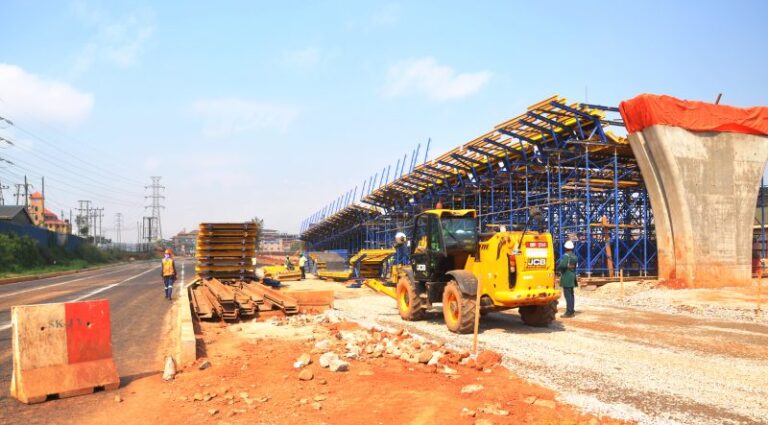A growing number of road construction projects across Uganda have ground to a halt after contractors walked off sites due to unpaid government arrears totaling approximately Shs3.5 trillion, according to Works and Transport Minister Gen. Edward Katumba Wamala.
Among the most high-profile stalled projects is the Busabala Flyover, where China State Construction Engineering Corporation (CSCEC) is demanding Shs43 billion in unpaid dues.
The flyover drew public attention over the weekend following the tragic death of Rajiv Ruparelia, Managing Director of the Ruparelia Group and son of Kampala businessman Sudhir Ruparelia.
Rajiv died when his Nissan MR (registration UAT 638L) crashed into barriers at the flyover along the Munyonyo Southern Bypass at 1:54am on Saturday while traveling from Kajjansi.
Other affected projects include major thoroughfares such as the Kampala-Jinja Highway, Mubende-Mityana Road, and World Bank-funded Greater Kampala Metropolitan roads.
Also impacted are the Northern Bypass, Entebbe-Nakawuka Road, Busega-Mpigi Expressway, Mbale-Soroti Road, and the Rwekunye-Apac-Aduku-Lira-Kitgum-Musingo Road, as well as the Kira-Kasangati-Matugga Road.
Addressing journalists at the ministry headquarters in Kampala, Gen. Katumba explained that many contractors had not received payments for completed work, severely affecting progress.
He noted that he had raised the issue in Parliament and called for a supplementary budget to settle the outstanding debts.
“We are aware that several roads have outlived their lifespan and require urgent maintenance and rehabilitation,” Katumba said.
“However, the problem remains the imbalance between funding for new construction versus maintenance. Our budget for road maintenance next year has been cut, and this is a major concern.”
He added that the government operates on a cash economy, meaning expenses can only be made when funds are available. “No single person is to blame, but we are engaging with the finance ministry to explore other funding options.”
According to Katumba, the ministry aims to maintain about 2,000km and rehabilitate 400km of roads in the next financial year, excluding work on outdated structures like Pakwach Bridge, which is set for demolition.
He reiterated that the government is committed to addressing the road crisis and knows the state of every kilometre.
Some contractors have received partial payments from a previously approved supplementary budget, but not the full amount requested. “We will work within the limits of what we have received and hope this will bring some contractors back to work,” he said.
To address emergencies and reduce dependency on external contractors, the ministry is also building internal construction capacity, currently seen on the Gayaza-Kalagi Road and planned work on Jinja and Katosi Roads.
Gen. Katumba said he was prompted to address the media not only due to public concern over Rajiv’s death but also to clarify the overall state of Uganda’s road infrastructure.
He invited Eng. Isaac Wani, acting commissioner for roads, to explain why road construction often takes long, citing the time needed for site preparation, clearing vegetation, excavation, and laying foundations.
Rajiv Ruparelia’s Death Under Investigation
Katumba expressed condolences to the Ruparelia family and confirmed that the government has launched investigations into Rajiv’s fatal crash.
“Losing a child is a deeply painful experience. We stand with Sudhir and his family during this incredibly difficult time,” he said.
The minister urged media houses to avoid speculation and allow the investigation team to produce a comprehensive report. “Premature reporting can mislead the public and make it harder to correct misinformation later.”
Katumba also clarified that the Munyonyo area is not part of the Entebbe Expressway, which officially runs from Busega to Mpala, hence the presence of speed limits and traffic lights in the area.
The incident has sparked widespread public criticism and scrutiny of road safety. Capt. Mike Mukula, NRM vice-chairperson for eastern Uganda, called it an “unforgivable tragedy” and demanded accountability.
“The barriers had no proper signage or warning. This is gross negligence. Criminal charges for culpable homicide, abuse of office, and reckless endangerment must follow,” Mukula said, warning that this was not an isolated case but part of a broader systemic issue.
Gen. Katumba responded by assuring the public that investigations will determine accountability. “If there is blame to be placed, it will be placed where it belongs,” he concluded.

